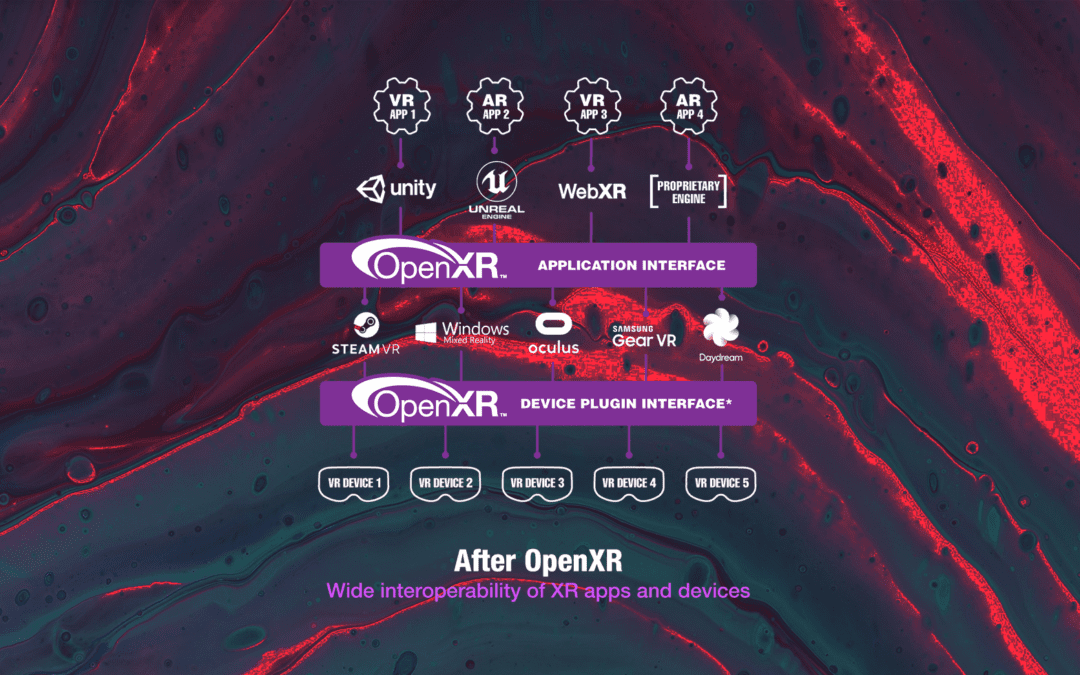Less is more, also when it comes to game development. But sadly, it’s not always possible to reach this minimalistic standard, for example, when every other distribution platform requires a different API adjustment. In that case, there’s always a lot of extra work to do, plus the production time is taking much longer while getting more complicated.
But luckily for us, there is a certain movement that believes in change. And even though it stands against the common VR companies’ interest, now it’s being taken very seriously – as a manifestation of the producers’ and users’ urgent needs.
OpenXR™ is the Khronos Group’s royalty-free, an open standard for high-performance access to Augmented Reality (AR) and Virtual Reality (VR)—collectively known as XR—platforms and devices. – Khronos Group.
The OpenXR project is being developed since 2017, and recently the working group behind it has released the Conformance Test Suite dedicated to all the XR platform owners who want to become more accessible for game studios. Along with the tests, Khronos has launched an OpenXR 1.0 Adopters Program, designed for OpenXR product developers. After getting the official quality mark, they gain the right to use the OpenXR’s logo in their communication and to apply for patent protection under the Khronos IP Framework.
According to the newest information presented by Khronos Group, the OpenXR solution has been recently officially supported by Microsoft and Oculus corporations, which means that the companies will approve all the correctly submitted products made by developers working with OpenXR. Now, they can distribute their applications through Microsoft Store (for MWR and HoloLens2) and Oculus Quest and Oculus PC.
Moreover, Khronos Group revealed that the programs like Varjo, 3D creation suite, Blender 2.83, and Chromium81 will from now on support the OpenXR too.
Valve, the owner of the SteamVR distribution platform, has also expressed its interest in supporting OpenXR in the future. The company has announced that the solution will be tested for its immersive systems.
What’s even more interesting, Sony corporation, which is the owner of PlayStation VR and a partner in the industry group building OpenXR, hasn’t yet expressed any intentions to allow the distribution of applications based on open-source API.
All the reports mentioned above will surely meet a warm welcome from the development teams around the world (Giant Lazer included) that were craving improvements like that. To this day, game studios working on the applications for Oculus platforms alone had to prepare two different versions of one product – one for Quest and one for Rift. And now it’s changing for the better.
There’s also an additional perk for the companies working on projects using hand-tracking and eye-tracking technology. According to the latest press release, Open XR is now supporting these solutions too.

